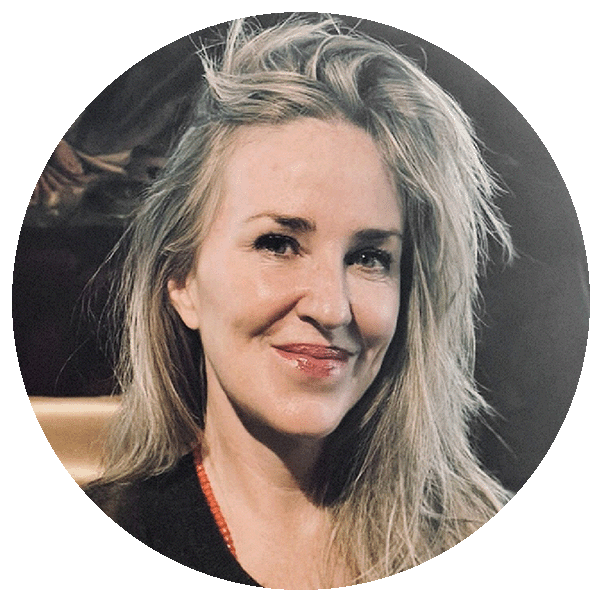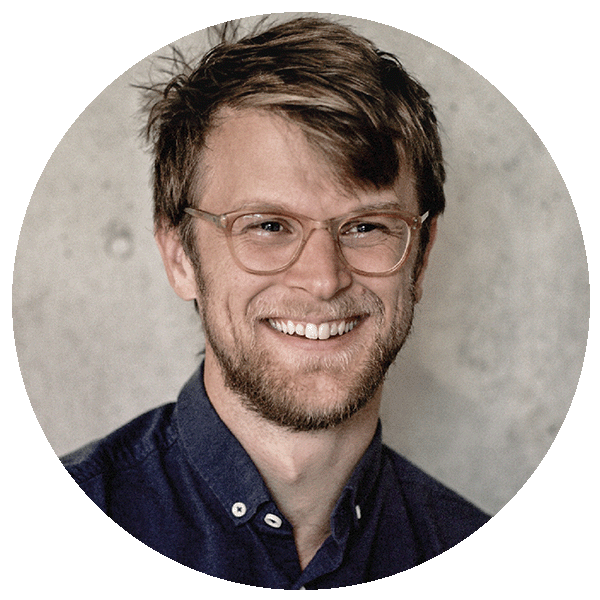Future State: New Realities
Want to hear more from our Future State key speakers?
Sign up to Spark Lab to get notified when we release new articles, podcasts, videos, tips and more from the event.
Explore Future StateThis month we explore the themes of technology, sustainability and community. Future State speakers Danielle Krettek Cobb, who founded Google’s Empathy Lab, and Dr Jonnie Penn, a professor of AI Ethics & Society at the University of Cambridge, share their insights.


Can you speak humpback whale and honeybee? For Danielle Krettek Cobb, the answer is a tantalising 'not yet'.
When in Auckland to speak at the Future State event, Danielle discussed the potential of AI to help us understand the natural world. By applying AI’s huge computational power, we might one day eavesdrop on a Humpback whale singing nursery rhymes to her calf or a Queen Bee sweet talking her drones.
Danielle cites the technologist and scientist Karen Bakker, whose book The Sounds of Life explains why the combination of bioacoustics, AI and digital tools means we can start to listen and decipher the communications of plants and animals. Conversations in nature that are often occurring in frequencies that humans can’t hear.
Paraphrasing entrepreneur Peter Diamandis, Danielle says the wisdom and the science are here, they just aren’t evenly distributed. She says, once we tune into what they are saying, we might care more, and understand better, how to live more sustainably.
Danielle’s latest venture is GRANDMOTHER, a non-profit women’s collective based in Hawai’i, co-founded with Kea’a Davis, a Stanford-trained researcher and designer and Ashley Ono, a physician at Queens Hospital. GRANDMOTHER is a council of experts including neuroscientists, technologists, cultural practitioners, journalists, movement-builders, artists and farmers, supporting and resourcing social healers of all kinds.
Danielle points to generational wisdom as the carrier of the codes of powerful human learning through transmission. She shares that ancestral science is data-rich and full of methodologies relevant to the most poignant crises we face right now, from mental health to climate.
"There are many people on this planet that know how to live in a good way with nature, that know how to solve these problems. The whole field of biocultural restoration is about this, this is where I think we should be looking for answers," she says.
GRANDMOTHER gives grants and gifts to indigenous social healers and advises businesses and startups to become meaningful agents of social healing.
AI is one of the biggest contributors to climate change.
AI will help mitigate the impact of climate change.
Both of these statements are true, according to Jonnie Penn, a professor in AI Ethics and Society at the University of Cambridge.
Penn spoke at the Future State event, where he reflected that “we live in a world that accommodates us, that could change. AI can be useful, but it will still be subject to climate change.”
Solutions found in nature
While Penn notes the open-source movement is finding ways to look to distributed techniques that are less taxing than current centralised models, the solutions may lie in nature, not technology.
“I think the exciting part about the future of AI and climate is less about technology and more about society. We should look to indigenous communities for the leadership they bring to the world about what it means to relate to nature, that this is not just a planet to be extracted from,” he says.
AI to the planet’s defence
There are examples of where AI is being deployed in climate change mitigation, such as in the realm of Earth observation. That is, using satellites to detect the emissions of individual factories in the world and how these emissions conform with what countries are allowed under international agreements.
“Using satellites, we can actually measure exactly what is coming from where, so there is promise there,” Penn says.
“The interesting thing about AI and climate will be this competition for resource in the short term. An example is there is a major ammunition manufacturer in Europe that is competing with a TikTok data server for electricity in Norway. These sorts of contests will unfold more and more as we rely on these tools.”
AI are deep learning models. Danielle explores how humans must also learn alongside technologies like AI, and explore our own curiosity and wonder.
To learn the skills Danielle uses to prepare herself and her team for moments of innovation, watch the video and check out the tools below.
Danielle shares her 3 steps to the ultimate meeting in the age of AI.
View the exerciseExplore the difference between Lantern Awareness and Spotlight Awareness, and how you can use these concepts to rediscover a sense of wonder.
Read moreWant to hear more from our Future State key speakers?
Sign up to Spark Lab to get notified when we release new articles, podcasts, videos, tips and more from the event.
Explore Future State